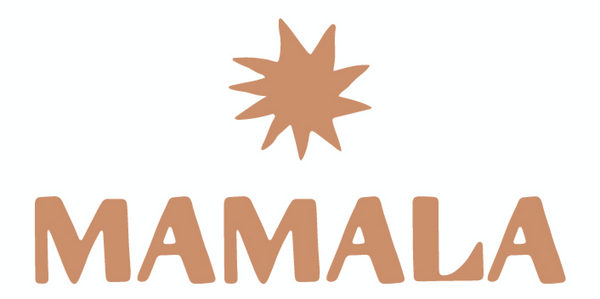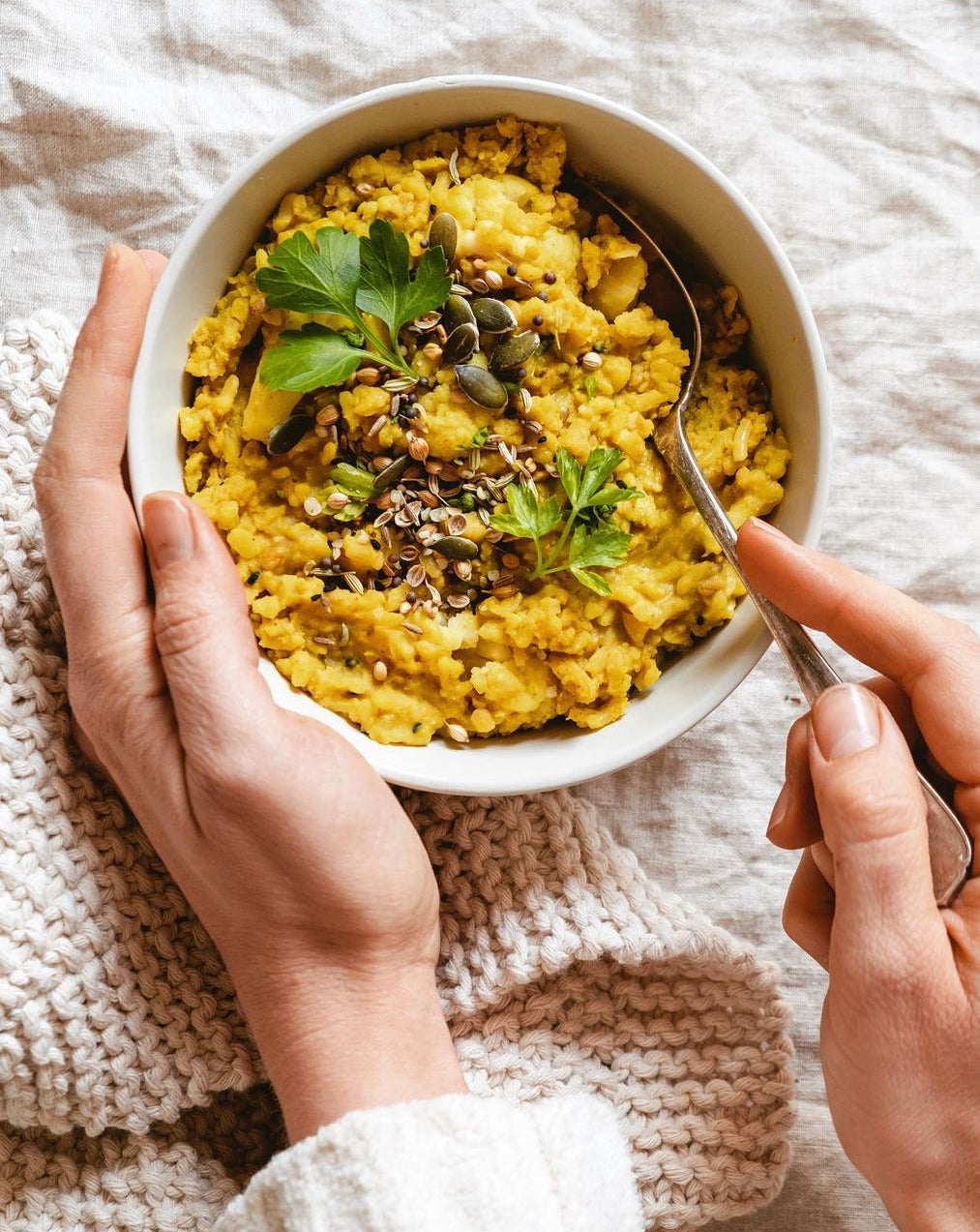Becoming a mother is a profound transformation, and the postpartum journey is one of healing, renewal, and deep self-care. In Ayurveda, the ancient Indian system of medicine, the postpartum period is regarded as sacred—a time when the mother needs warmth, nourishment, and rest to restore her strength and vitality. One of Ayurveda’s most treasured recipes, known as kitchari, offers a simple yet powerful way to support the body’s healing process with gentle, nutrient-dense comfort.
What is Kitchari?
Kitchari (pronounced kich-uh-ree) is a traditional Indian dish made from rice and lentils, gently spiced and cooked to a soft, porridge-like consistency. Often viewed as the ultimate comfort food in Ayurveda, kitchari is used to cleanse, heal, and restore balance to the body. With its warming spices and easy-to-digest ingredients, it serves as both a nourishing meal and a form of gentle medicine, perfect for supporting new mothers on their path to recovery.
The Ayurvedic Philosophy Behind Kitchari
In Ayurveda, postpartum care is essential for protecting the mother’s ojas—the vital energy or life force that supports immunity, mental clarity, and emotional well-being. After childbirth, a mother’s ojas is naturally depleted, and replenishing it is crucial for her recovery and long-term health. This is where kitchari comes in: its ingredients are carefully chosen to provide warmth, grounding, and easy digestion, helping restore this vital energy.
Ayurveda also emphasizes balance among the three doshas: vata, pitta, and kapha, which represent different energies within the body. Postpartum, the vata dosha tends to increase, creating feelings of coldness, anxiety, and fatigue. Kitchari’s warm, moist, and grounding qualities help to calm vata, bringing peace and stability to both body and mind.
Why Kitchari is Ideal for Postpartum Healing
Kitchari’s simple ingredients—usually basmati rice and split mung dal (a type of yellow lentil)—are packed with nourishing qualities that support healing in several ways:
- Easy to Digest: After birth, the digestive system can be sensitive. Kitchari’s soft, porridge-like texture is gentle on the stomach, allowing mothers to absorb nutrients without digestive strain.
- Restores Vitality: The mung dal provides a gentle source of protein, while basmati rice gives a steady release of energy, helping to combat the fatigue that many new mothers experience.
- Promotes Hydration and Warmth: Cooked with generous amounts of water and ghee (clarified butter), kitchari keeps the body hydrated and warm, which is essential for vata balance.
- Loaded with Healing Spices: Traditional Ayurvedic spices such as cumin, turmeric, ginger, and fennel are added for their digestive, anti-inflammatory, and immune-boosting properties. These spices also bring warmth to the body, soothing and stabilizing the postpartum system.
Recipe
*Lovingly shared with us by one of our favorite Los Angeles Ayurvedic Postpartum Doulas- Aleila *
2/3 C. red lentils (or split mung beans)
1/3 C. basmati rice
4 C. water
1 Tbsp. ghee or coconut oil
1 tsp. ground turmeric
1 tsp. ground coriander
1/4tsp. ground cumin
1/4 tsp. whole fennel seed
1/4 tsp. ground ginger
1 tsp. salt
small handful fresh cilantro
1 small carrot, chopped
half zucchini, quartered and sliced
1/4 small fennel bulb, sliced
1 small beet peeled, quartered, sliced
Directions:
1 Rinse red lentils and rice under running water until water runs clear. Add to rice cooker and add 4 cups fresh water.
2 Melt ghee on low heat and add spices, heating until just fragrant (about 2-3 min.)
3 Add fresh cilantro to pan and stir until just wilted.
4 Add spice mixture and fresh vegetables to rice cooker.
5 Hit start. Depending on your liking and your rice cooker, you can alter the amount of water to make kitchari thicker or more like soup.
We hope you enjoy this savory comfort food and soak up all the healing.
Much Love.
~Dr. Kristyn

